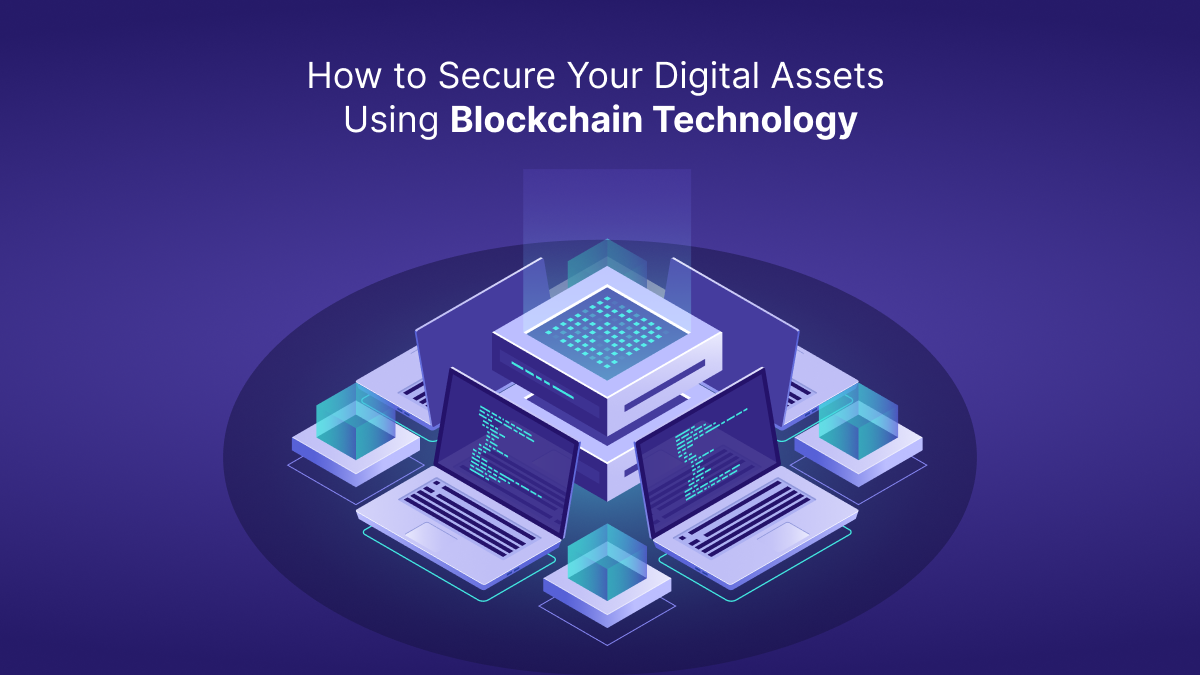How to Secure Your Digital Assets Using Blockchain Technology

Digital assets have become an integral part of modern business and personal finance. From cryptocurrencies to digital contracts, securing these assets is crucial to prevent fraud, unauthorized access, and loss. Traditional security measures often fall short in protecting digital transactions, making blockchain technology a valuable solution. Blockchain provides a decentralized, tamper-proof system that enhances security, transparency, and trust. By understanding how blockchain works, businesses and individuals can implement effective strategies to safeguard their digital assets.
Understanding Blockchain Security
What is Blockchain Technology?
Blockchain is a digital ledger that records transactions across multiple computers in a network. This system ensures that data remains secure and cannot be altered without consensus from all participants. Unlike traditional centralized databases, blockchain operates on a distributed network, eliminating the risks of single points of failure.
How Blockchain Enhances Security
Blockchain uses advanced cryptographic techniques to secure transactions. Each block in the chain contains a hash, which is a unique code linking it to the previous block. Once a transaction is recorded, it cannot be modified or deleted, ensuring data integrity. Additionally, blockchain relies on consensus mechanisms such as proof-of-work and proof-of-stake to validate transactions, preventing unauthorized alterations.
Key Strategies to Secure Digital Assets Using Blockchain
Utilizing Private and Public Keys
Blockchain security is based on cryptographic keys. Each user has a private key and a public key. The private key serves as a digital signature, allowing users to authorize transactions securely. Protecting this key is essential, as losing it means losing access to digital assets. Businesses should implement secure storage solutions such as hardware wallets to safeguard private keys.
Implementing Smart Contracts
Smart contracts are self-executing agreements that run on blockchain technology. These contracts automate processes without the need for intermediaries, ensuring secure and transparent transactions. By using smart contracts, businesses can reduce fraud and eliminate manual errors in digital asset management.
Choosing the Right Blockchain Network
Not all blockchain networks offer the same level of security. Public blockchains, such as Bitcoin and Ethereum, provide transparency but may be vulnerable to attacks. Private and consortium blockchains offer enhanced security by limiting access to authorized participants. Businesses must select the most suitable blockchain type based on their security requirements.
Utilizing Multi-Signature Authentication
Multi-signature authentication enhances security by requiring multiple approvals before completing a transaction. This prevents unauthorized access and ensures that digital assets remain protected. Companies handling large transactions benefit from implementing multi-signature security protocols.
Keeping Software and Systems Updated
Blockchain technology is continuously evolving, and security updates are crucial in preventing cyber threats. Businesses should regularly update their blockchain platforms, wallets, and security systems to protect against vulnerabilities and potential breaches.
Educating Users on Blockchain Security
Many security breaches occur due to human error. Organizations should educate employees and stakeholders on blockchain security measures, safe transaction practices, and the importance of private key protection. Awareness and training reduce the risks of phishing attacks and fraud.
Read More: How a Binance Clone App Can Accelerate Your Crypto Business
Industry Applications for Securing Digital Assets with Blockchain
Financial Services
Blockchain technology enhances security in financial transactions by preventing fraud, ensuring transparency, and reducing operational risks. Banks and fintech companies integrate blockchain to secure payments, digital contracts, and asset management systems.
Healthcare Sector
Healthcare organizations use blockchain to protect sensitive patient data, secure medical records, and enhance drug supply chain security. Blockchain ensures that medical information remains confidential while allowing authorized parties to access it when necessary.
Real Estate and Property Transactions
Real estate businesses rely on blockchain to digitize contracts, authenticate property ownership, and prevent fraud in transactions. Secure blockchain systems eliminate paperwork and streamline property dealings with automated verification processes.
Supply Chain Management
Blockchain provides enhanced security in supply chain operations by tracking the movement of goods and preventing counterfeiting. Companies use blockchain to verify product authenticity, reduce losses, and optimize logistics efficiency.
App Development Company Integration
Blockchain plays a critical role in app development security. Developers integrate blockchain technology to enhance security in applications, protect user data, and create tamper-proof digital experiences. By securing app transactions and user identities, businesses can prevent data breaches and unauthorized access.
FAQs
How does blockchain prevent fraud in digital transactions?
Blockchain uses encryption and decentralized verification to ensure transaction authenticity. Fraudulent activities are detected and blocked by consensus mechanisms and cryptographic security protocols.
Is blockchain technology suitable for small businesses?
Yes, blockchain offers security solutions for businesses of all sizes. Small businesses can use blockchain to secure transactions, automate contracts, and protect sensitive data without requiring complex systems.
Can blockchain protect user identities online?
Blockchain improves identity security by providing decentralized authentication systems. Users can store and verify credentials on blockchain networks without exposing personal data to third parties.
How do smart contracts enhance digital asset security?
Smart contracts eliminate manual errors and enforce predefined rules for transactions. These contracts ensure automated execution without tampering, reducing risks in digital asset management.
What are the risks of using blockchain for securing digital assets?
While blockchain provides advanced security, risks such as private key loss, network vulnerabilities, and phishing attacks exist. Businesses must implement strong security practices, use multi-signature authentication, and stay updated on blockchain advancements to mitigate risks.

Conclusion
Blockchain technology offers a reliable and secure solution for protecting digital assets. By leveraging encryption, decentralized networks, and automated security mechanisms, businesses can safeguard transactions, reduce fraud, and ensure transparency. Implementing key blockchain security strategies, educating users, and selecting suitable platforms are crucial steps toward securing digital assets in various industries. Whether in finance, healthcare, real estate, or an on-demand app development company, integrating blockchain enhances security and promotes trust in digital interactions.
- Art
- Causes
- Crafts
- Dance
- Drinks
- Film
- Fitness
- Food
- Juegos
- Gardening
- Health
- Home
- Literature
- Music
- Networking
- Other
- Party
- Religion
- Shopping
- Sports
- Theater
- Wellness
- IT, Cloud, Software and Technology



